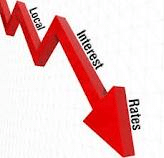The Reserve Bank of Australia (RBA) has cut interest rates in a bid to boost growth amid fears of a slowdown in the global economy.

The move comes amid fears that the debt crisis in Europe and slowdown in the US may hurt global economic growth.
RBA said it was concerned about the impact of global uncertainty on its economy,
“Information about the Australian economy suggests moderate growth overall,” the bank said in a statement.
“The terms of trade have now peaked and will decline somewhat in the near term,” it added.
Apart from the global pressures, the central bank has also had to deal with a slowing domestic demand.
While Australia’s resources and mining sector have been booming, other areas of the economy such as retail sales have witnessed a slowdown in recent times.
“In other sectors, cautious behaviour by households and the high exchange rate have had a noticeable dampening effect.” the bank said.
According to the latest data by the Housing Industry Association, new home sales in Australia fell to their lowest level in 11 years in September.
Analysts said that as fears of a global slowdown gather pace, the central bank is worried that demand may fall further.
“The RBA’s decision to cut rates by 0.25% is an admission that domestic demand is feeling the pressure,” said Peter Escho of City Index.
“Clearly, the RBA is using its toolbox to cushion the impact,” he added.
While falling consumer demand has been a concern for the central bank, it has also helped to slow consumer price growth in the country.
As Australia witnessed an economic growth powered by a boom in its resources sector, the RBA repeatedly maintained that keeping inflation in check was among its top priorities.
“The subdued demand conditions and the high exchange rate have contained inflation more recently,” the bank said.
According to the Australian Bureau of Statistics the consumer prices rose 0.6% in the July to September quarter, compared with a rise of 0.9% in the previous three months.
The bank added that it expected inflation to stay within its target range of 2% – 3% in 2012 and 2013, as pressures on consumer prices ease, and labour costs outside the resources sector moderate.
Analysts said that a slowdown in consumer price growth had made it easy for the bank to cut the cost of borrowing.

